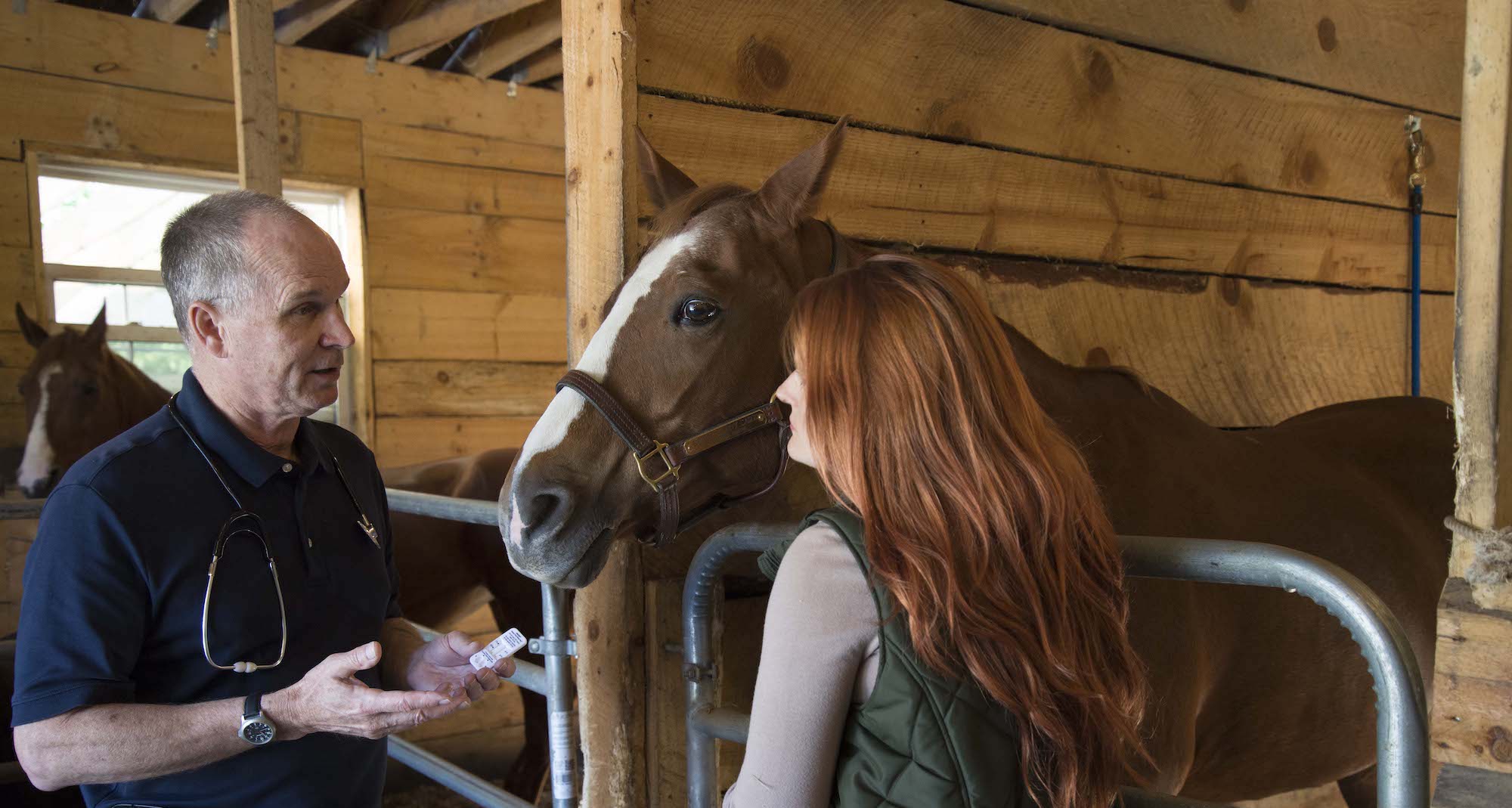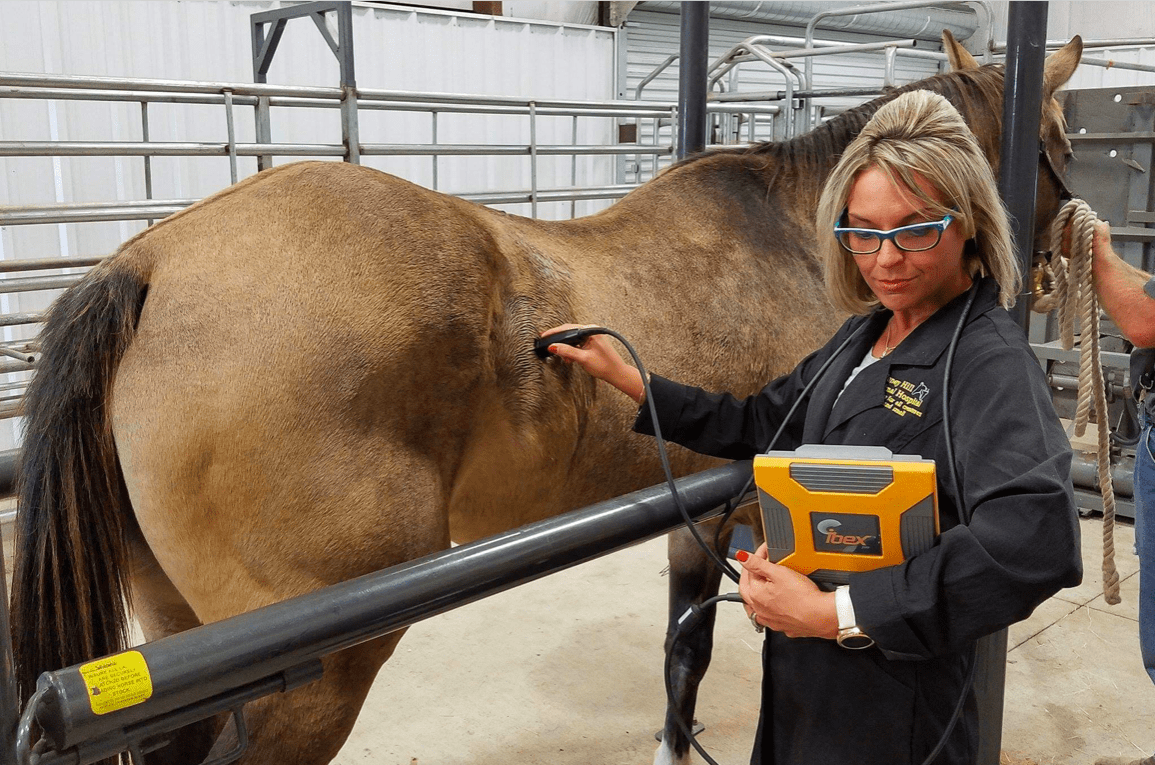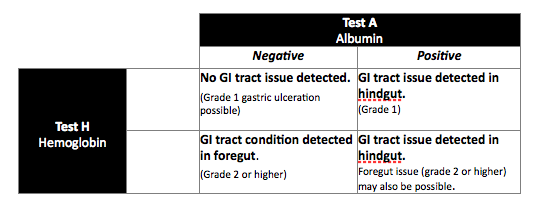The SUCCEED Equine Fecal Blood Test (FBT) is the first rapid test to aid the veterinarian’s diagnosis of GI tract conditions in horses and help differentiate foregut from hindgut conditions.
Because the FBT is an antibody test that accurately detects equine occult hemoglobin and albumin in a fecal sample, the test facilitates veterinary diagnosis of any pathological condition of the equine gastrointestinal (GI) tract, which manifests in a loss of either of these two blood components. During extensive validation of the test kit, a PPV upwards of 95% for GI tract ulceration was reported, which demonstrates that positive test results most likely indicate gastric and/or colonic ulcers. However, positive FBT results may also indicate further GI tract disorders such as Protein Losing Enteropathies, colitis, parasite burden and petechiation, hyperemia and lipomas. These conditions can all produce equine occult albumin and/or hemoglobin that ultimately reaches the feces, and will thereby test positive on the SUCCEED Equine Fecal Blood Test.
Positive Test Results without the Presence GI Tract Conditions
Fecal occult albumin or hemoglobin from any source, internal or external, will produce a positive FBT result. As a result, practitioners should take care to ensure that blood components are not introduced into the GI tract from external sources.
In order to avoid positive results that are not related to the digestive tract, do not use the FBT in the following situations:
After Dentistry:
Even a small amount of bleeding caused by floating a horse’s teeth, or any lesions around the horse’s mouth can lead to a positive FBT result. You should avoid using the FBT for 3 days following dental work and be sure that the horse’s mouth and gums are free of lacerations or sores.
With a Horse Prone to Exercise-Induced Pulmonary Hemorrhage:
Exercise-induced pulmonary hemorrhaging (EIPH) is most frequently reported in competition horses, presenting as blood in the airways 30-90 minutes after exercise. The resulting epistaxis is the main symptom of EIPH but is not always essential for diagnosis, as endoscopic examination may identify bleeding limited to the trachea and bronchi. EIPH is likely to contribute towards a positive FBT from ingested blood, so the clinical history and an awareness of the horse’s competitive activities is imperative. Regardless, it is always wise to avoid testing within 24 hours of racing or strenuous activity to avoid a false-positive for GI conditions.
During Mare Ovulation
Avoid testing a mare during ovulation, or on/around day five of a typical estrous cycle. Since the follicle in the mare normally fills with blood after ovulation, this blood can potentially interfere with the results of the FBT. Be sure to ask the horse owner when the mare was last in season. When testing during the breeding season ensure that this takes place during diestrus.
After Invasive Surgery
Any type of invasive procedure, from routine endoscopy and biopsy, to GI tract surgery can cause bleeding within the digestive tract. This blood would very likely be detected by the FBT leading to a positive result, so gathering recent medical history prior to performing the test is essential.
Remember that the test is sensitive to any equine blood in the feces, whether it has originated from the GI tract or from external sources. When used properly under the appropriate conditions, the SUCCEED Equine Fecal Blood Test is a powerful veterinary aid, enabling rapid, cost-effective and non-invasive differential diagnosis of GI tract disorders.
Be sure to contact Freedom Health for more information or to order the FBT.




